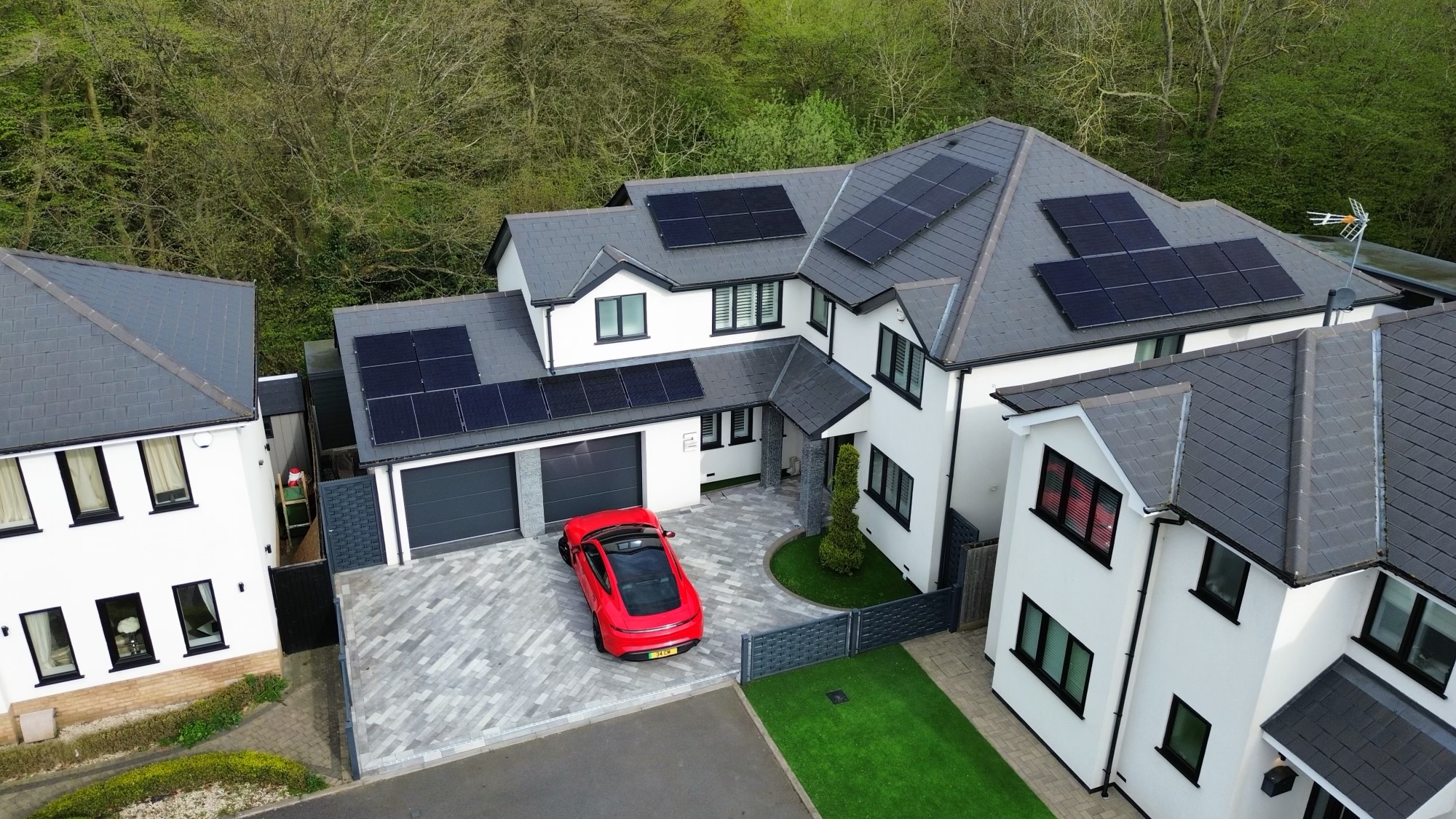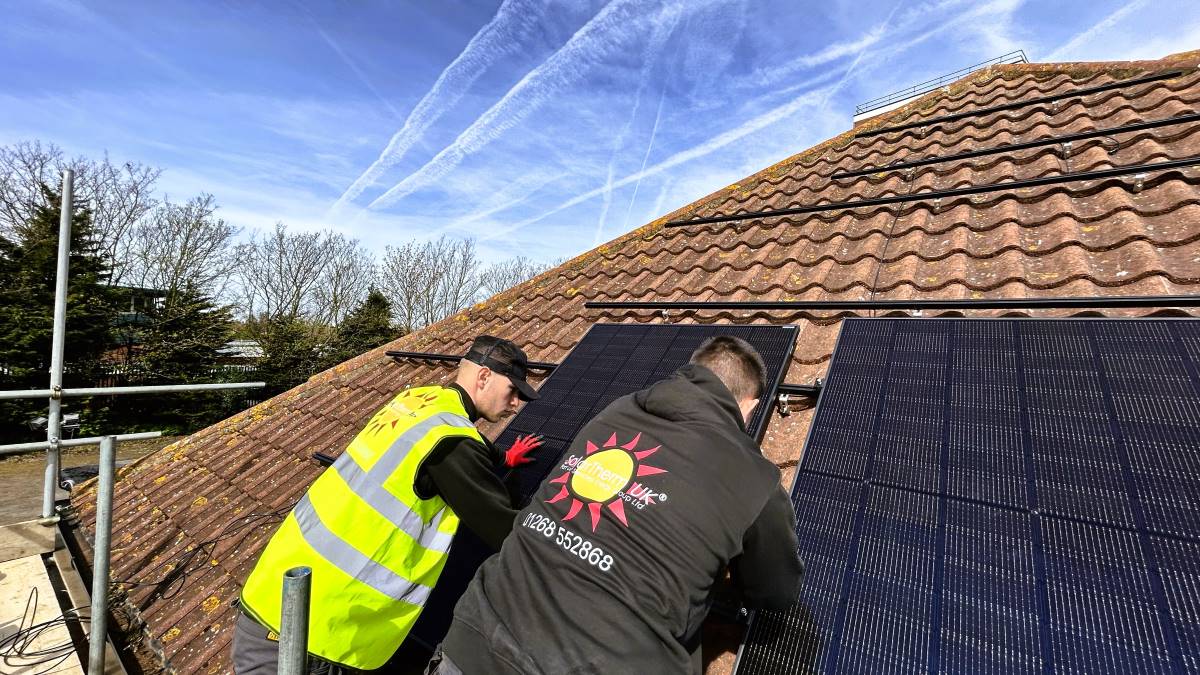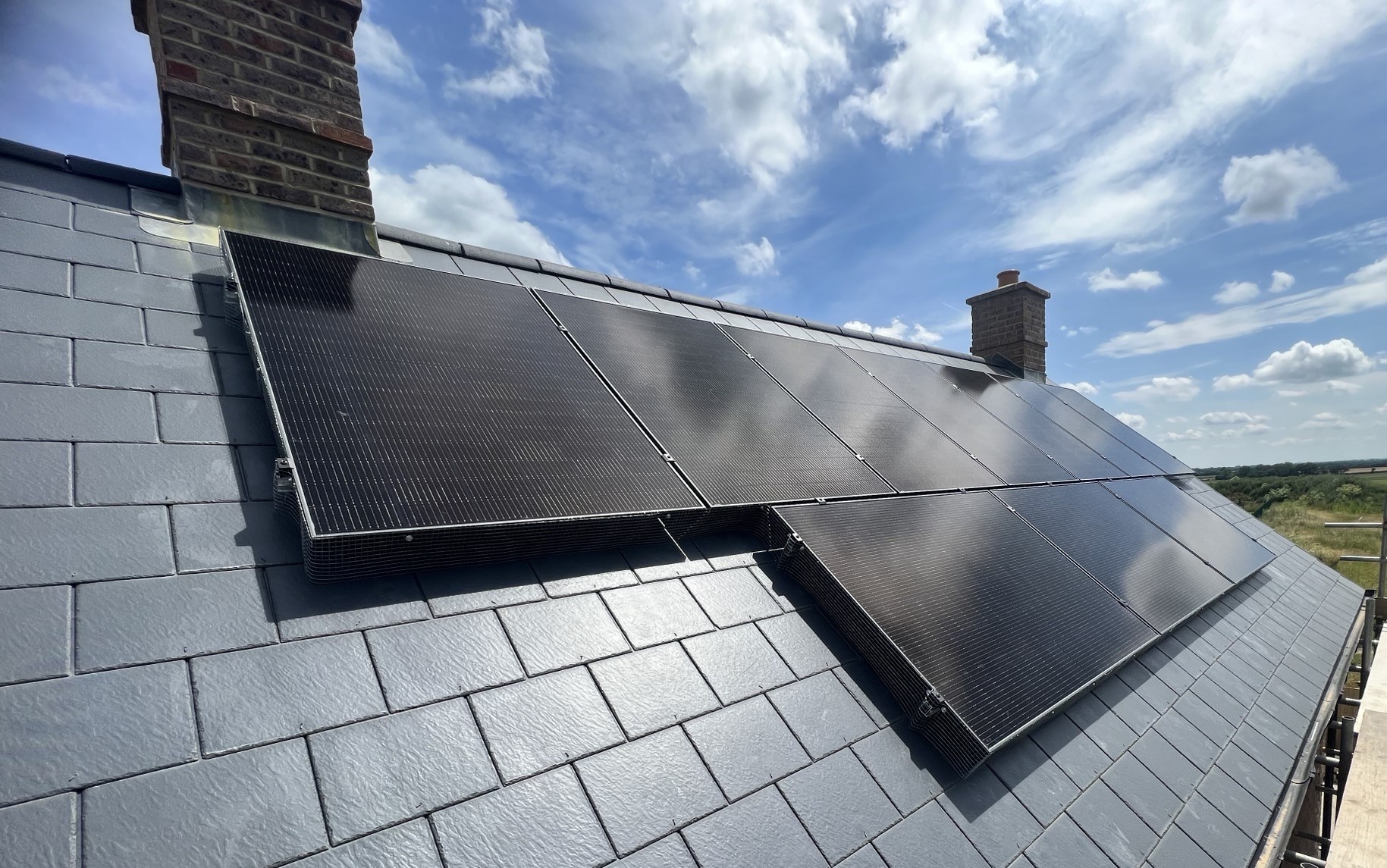With homeowners more so now than ever looking to offset their rising electricity bills, solar panels have become an increasingly popular and viable solution to offset energy bills and become more environmentally friendly. However, one of the key considerations before going solar is determining how much space is required to mount solar panels on your roof.
With the average square foot of a house in the UK standing at just under 970 square feet, some owners are left asking if they can fit solar panels on their house and how much space is required to fit solar panels. The amount of space needed depends on several factors, including the size and efficiency of the solar panels, the amount of electricity you want to generate, and the type of roof mounting system you choose.
In this article we will explore the sizing requirements for a solar panel system and the key considerations when deciding to mount solar panels on your roof.
Size of Roof Mounted Solar Panels
The first step in figuring out how much roof space you’ll need is understanding the size of the solar panels. Standard solar panels are typically around 1.8 meters by 1.2 meters (approximately 6 feet by 4 feet), and they generate around 400 watts of power. More efficient panels will generate more electricity in the same amount of space, which can reduce the number of panels you need.
Understanding solar panel efficiency when roof mounting solar panels…
For an average home, a 4kW solar system would require about 10-12 solar panels. This would typically take up around 20-30 square meters (about 215-323 square feet) of roof space.
That said, solar panel systems can come in an array of sizes depending on your needs, and when it comes to roof mounting solar panels, several factors can impact how much space you’ll require:
- Energy Requirements – The more energy your household consumes, the more solar panels you will need to mount on the roof. An average household uses around 10-15kWh per day, and most solar panels will produce around 1-1.5kWh per day. Calculating your specific energy needs will give you a better idea of how many panels you would require.
- Roof Orientation and Pitch – To maximise efficiency, solar panels should ideally face south, or as close to south as possible (in the UK) and have a pitch (or angle from horizontal) of between 20-40 degrees. Depending on how your roof is situated, this may limit the options for which section you can roof-mount solar panels on.
- Shading – Chimneys, tall trees, other building and obstructions may create shaded or partially shaded areas on your roof. This can affect the amount of roof space available.
- Type of Roof Mounting System – There are different options for mounting solar panels on the roof. A standard roof mounted solar panel system uses brackets to attach panels to the roof. This is the most common option, and what you will see with most retro-fitted roof solar panels in the UK. Alternatively, integrated solar panels, or in-roof panels, are fitted flush to the roof and fitted directly to the roof structure.
For those with a smaller roof space, this typically means fewer solar panels due to the space available, this can be somewhat offset by installing high-efficiency solar panels. The higher efficiency solar panels are often more premium and are more efficient at generating electricity, essential if you’re limited to the number of panels you’re able to fit.
Estimating Roof Space for Mounting Solar Panels
Here is a rough guide for estimating how much space might be needed to roof mount solar panels for a desired system size:
- 1kW System – Around 3-4 Solar Panels, approximately 8 square meters (93 square feet)
- 3kW System – Around 9 Solar Panels, approximately 19 square meters (209 square feet)
- 5kW System – Around 12 Solar Panels, approximately 25 square meters (279 square feet)
- 8kW System – Around 20 Solar Panels, approximately 43 square meters (465 square feet)
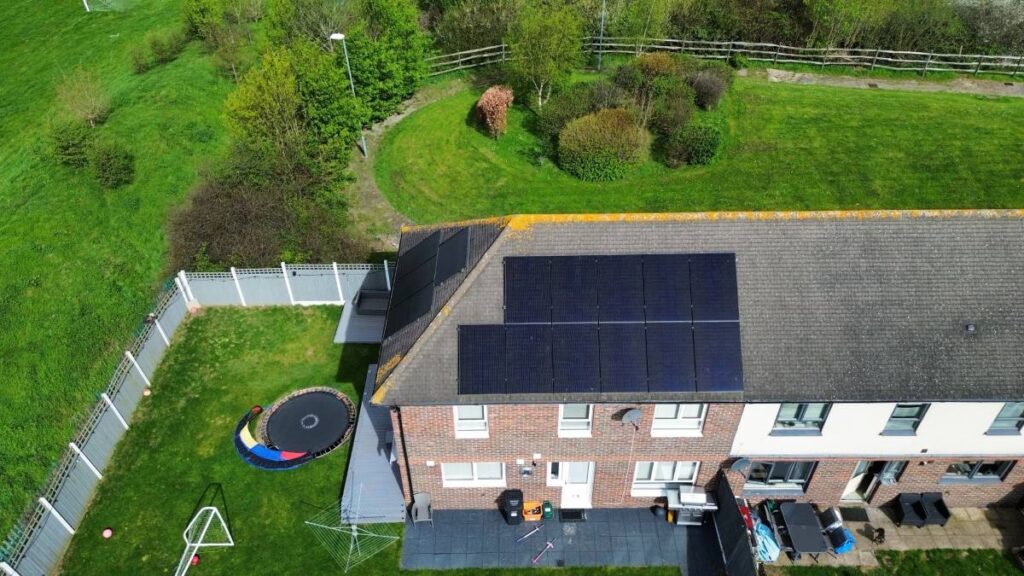
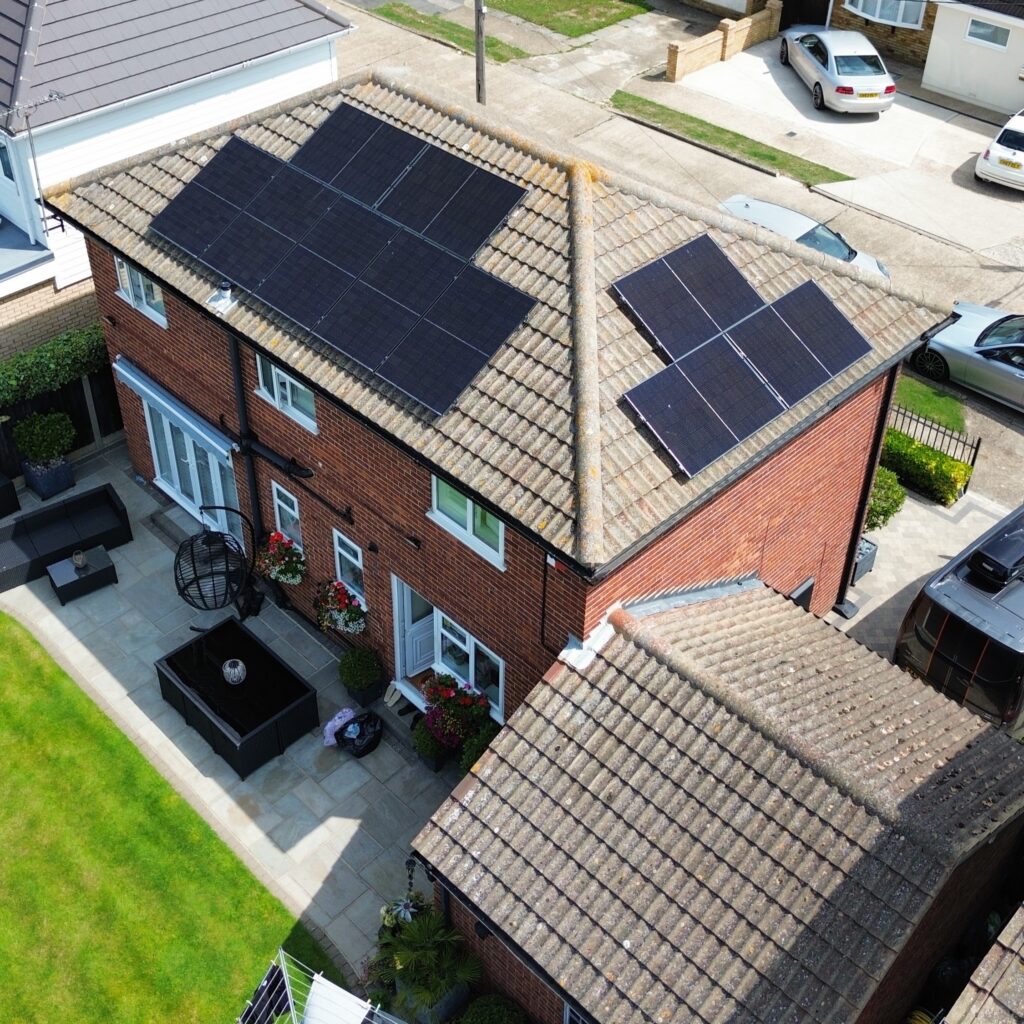
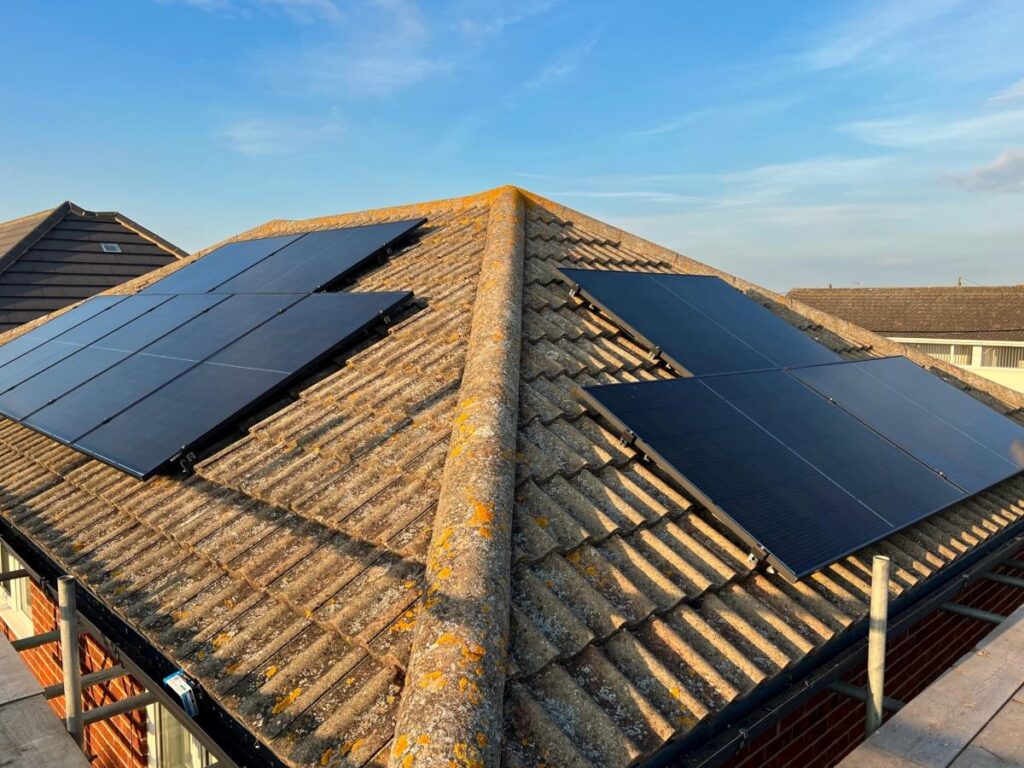
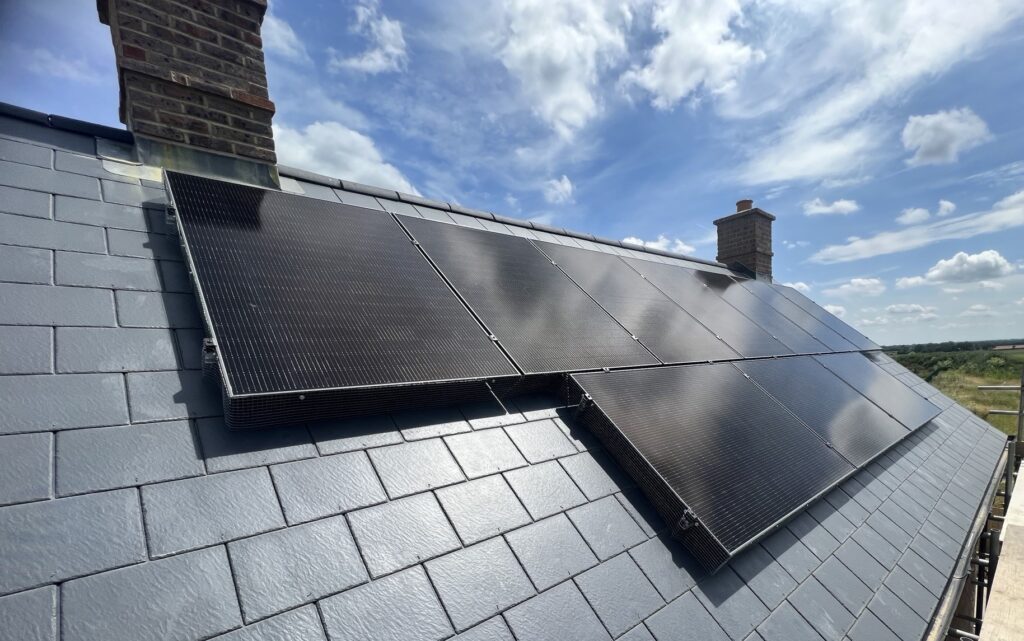
Matching solar array size to energy requirements
While it’s possible to cover your entire roof with solar panels, there comes a point where adding more panels may not make economic sense, especially if electricity generation from the solar panels far exceeds household consumption. However, there are two scenarios where installing additional solar panels beyond your household needs can be advantageous:
- Solar Panels with Battery Storage: If you are considering battery storage options as part of a solar panel system, extra solar panels can be useful for charging these batteries. This stored energy can then be used during peak times when solar generation is lower, helping to meet household energy needs more efficiently.
- Export Payments: If your energy provider offers a favourable rate for feeding excess electricity back into the grid through schemes like the Smart Export Guarantee (SEG), installing additional solar panels can be financially beneficial. After the initial payback period, any excess energy you generate could provide additional income.
In cases without a battery system, it’s most efficient to size your solar panel installation to match your household’s energy usage, ensuring optimal savings and returns.
Download our solar guide
Get our free guide to Solar Panels. The best resource for starting your journey into Solar.
Roof mounting solar panels on your property
To determine how much roof space you need to install roof mount solar panels, consider factors like your household energy usage, the orientation and shading of your roof, and the type of solar panel roof mounting system you plan to use. Typically, a 4kW system requires around 20-30 square meters of roof space, but this can vary based on your specific energy needs and roof conditions.
At SolarTherm UK, our team of expert installers have years of experience across thousands of solar projects, helping homeowners and businesses realise their energy-saving potential, while also helping them to reduce carbon emissions. To find out more about roof mounting solar panels or to get a quote for solar installation on your home or business, fill in our quick online form. It takes less than a couple of minutes and gives us all the information we need to start designing a solar panel system for your property.

